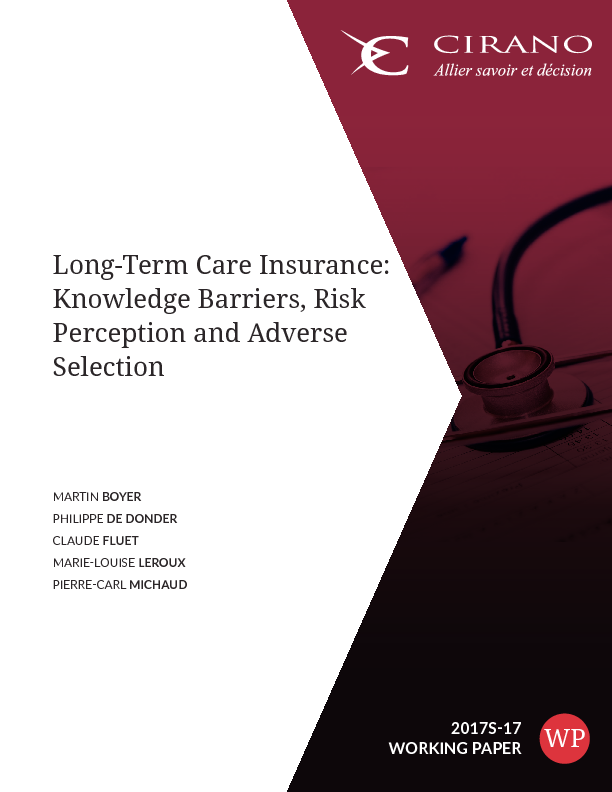Long-Term Care Insurance: Knowledge Barriers, Risk Perception and Adverse Selection
We conduct a stated-choice experiment where respondents are asked to rate various insurance products aimed to protect against
financial risks associated with long-term care needs. Using exogenous variation in prices from the survey design, and objective risks computed from a dynamic microsimulation model, these stated-choice probabilities are used to predict market equilibrium for long-term care insurance using the framework developped by Einavetal. (2010). We investigate in turn causes for the low observed take-up of long-term care insurance in Canada despite substantial residual out-of-pocket
financial risk.We first find that awareness and knowledge of the product is low in the population: 44% of respondents who do not have long-term care insurance were never off
ered this type of insurance while overall 31% report no knowledge of the product. Although we find evidence of adverse selection, results suggest it plays a minimal role in limiting take-up. On the demandside, oncer espondents have been made aware of the risks,we
find that demand remains low,in part because of misperceptions of risk, lack of bequest motive and homeownership which may act as a substitute.
[ - ]




